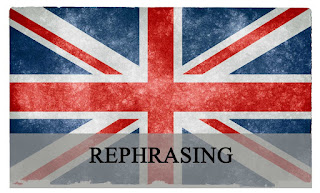A
friend of mine told me recently about a test designed to determine if a child
is going to be successful in the adult world. I’m not sure how scientific the
test was intended to be or if my friend remembered the details accurately, but
here goes.
A
four-year-old child is in the psychologist’s office. There is a delicious-looking chocolate on the table. The
chocolate is easy for the child to see and is perfectly accessible. The psychologist engages the child in conversation for a
few minutes and then pretends that she has to leave the office.
“If
the chocolate is still there when I come back,” she says, “I’ll give it to you
and another one. But if you eat that chocolate before I get back, there won’t
be another!”
Well,
most of the children apparently took a ‘bird-in-the-hand’ view and ate the
chocolate while the psychologist was away. A few,
however, exercised self-control and left it well alone. Ten years later, it
seems, the children who didn’t eat the chocolate were showing more signs of
success in their studies. Why? The idea, it seems, is that instead of being
subject to their immediate impulses, they are capable of sacrifice in the short
term in order to gain in the long term.
(Adapted
from an original text by Jim Lawley.)
Question 1: [2.5 POINTS] Indicate
whether the following statements are true or false and write down which part of
the text justifies your answer.
a. The
writer is a bit suspicious about the psychological test.
b. It
was hard for the child to reach the chocolate.
c. The
psychologist talked to the child for a while.
d. Some
children did not trust the psychologist’s promise.
e. Self-control
seems to lead to academic success.
Question 2: [1.5 POINTS] Find
words or phrases in the text that correspond to the words and definitions
given.
a. Without
any mistakes. (paragraph 1)
b. To
act as if something is true when it is not true. (paragraph 2)
c. To
return. (paragraph 3)
d. Sudden
strong desires to do something. (paragraph 4)
e. The
choice of giving up something of value. (paragraph 4)
Question 3: [2 POINTS] Choose the
most suitable answer (a, b or c) according to the text.
1. The
test was designed…
a) for
successful children.
b) to
decide if children are successful.
c) to
find out whether children will be successful when they grow up.
2. The
four-year-old child…
a) can
both see and reach the chocolate easily.
b) finds
eating chocolate easy.
c) does
not have access to the table.
3. The
psychologist promised…
a) to
give the children another chocolate if they ate the one on the table.
b) to
give the children another chocolate if they did not eat the one on the table.
c) to
give the children another chocolate before she got back.
4. Nearly
all the children…
a) refrained
from eating the chocolate while the psychologist was away.
b) exhibited
self-control and left the chocolate on the table while she was away.
c) ate
the chocolate while she was away.
Question 4: [4 POINTS] Write a
short essay (about 120-150 words) on the following topic:
Do you think a
psychological test is a good way to study personality?
from Maria Bolado
KEY
Question 1:
a) True.
“I’m not sure how scientific the test was intended to be or if my friend remembered the details accurately.”
b) False.
“The chocolate is easy for the child to see and is perfectly accessible.”
c) True.
“The psychologist engages the child in conversation for a few minutes.”
d) False.
“most of the children apparently took a ‘bird-in-the-hand’ view and ate the
chocolate.”
e) True.
“A few, however, exercised self-control and left it well alone. Ten years
later, it seems, the children who didn’t eat the chocolate were showing more
signs of success in their studies.”
Question 2:
a) Accurately.
b) To
pretend / pretends.
c) To
get back.
d) Impulses.
e) Sacrifice.
Question 3:
1 c) to find out whether children will be successful when they grow up.
2 a) can both see and reach the chocolate easily.
3 b) to give the children another chocolate if they did not eat the one on the table.






